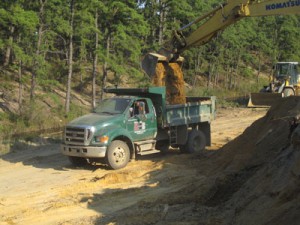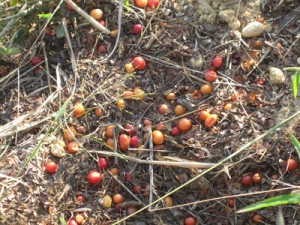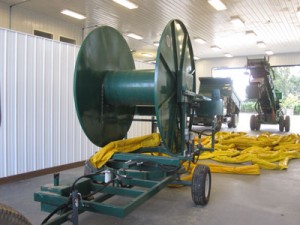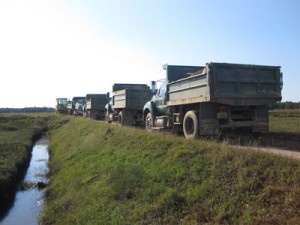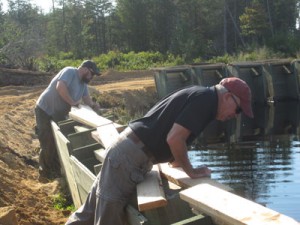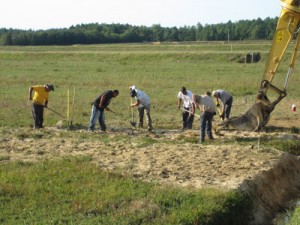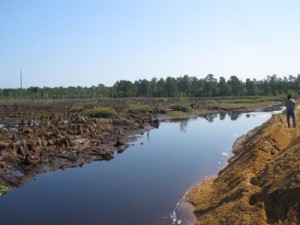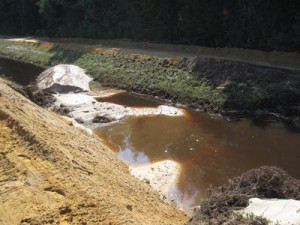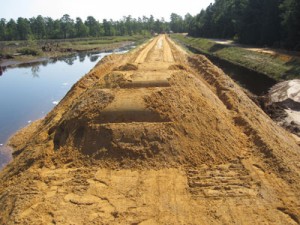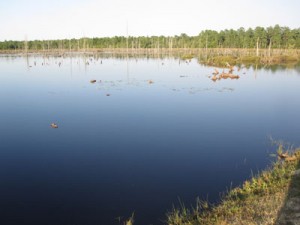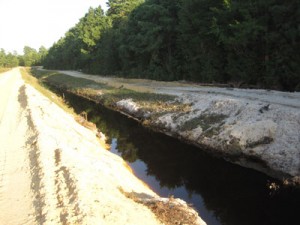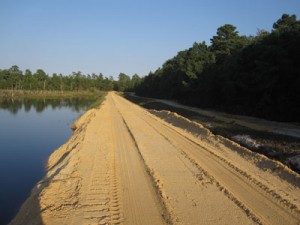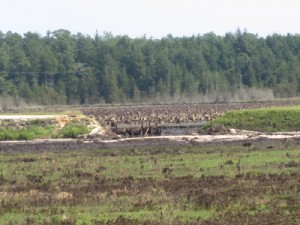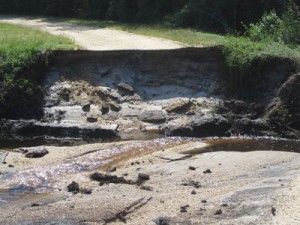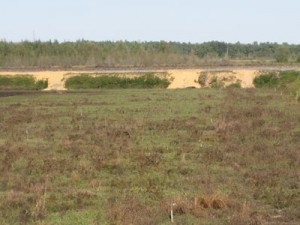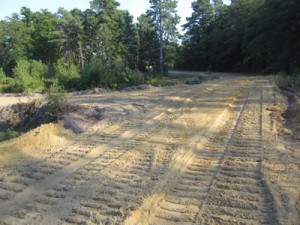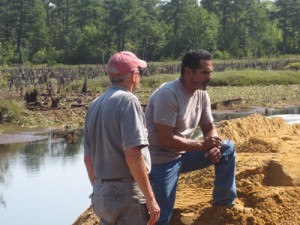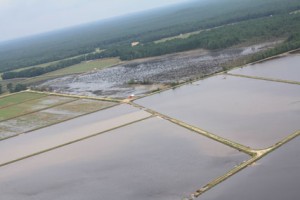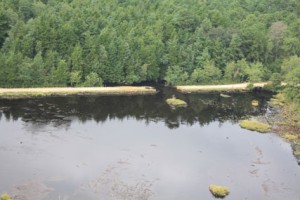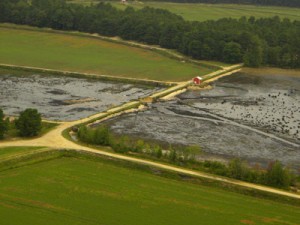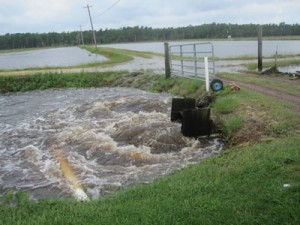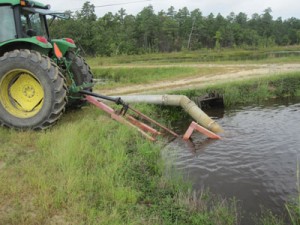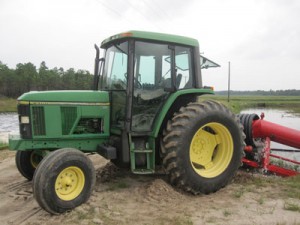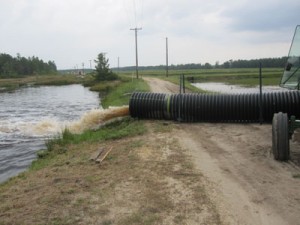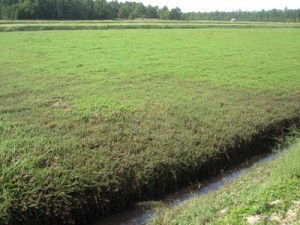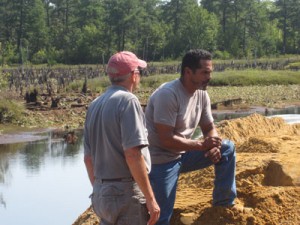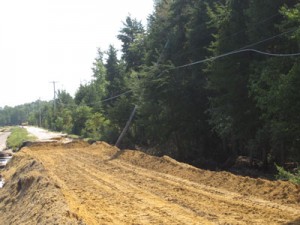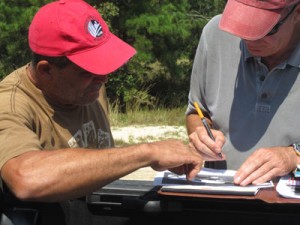Last week we found everyone hard at work in the immediate aftermath of a devastating storm. This week the Pine Island team is doubling down and doing whatever it takes to make it even better. Everyone is pitching in wherever they can: everyone who can be spared is running a dump truck or an excavator or a front loader. We’re patching everything up so we can get the reservoirs up and move around the property easily. We’re replacing gates where they got washed out. All of our trucks and all of our equipment are running at full capacity and it’s taking a lot of coordination, as there are multiple teams working at multiple locations.
“Our big focus right now is rebuilding, sure,” says Fred Torres, general manager. “But water is on our minds constantly and we’ve been slowly raising the water levels in the reservoirs and canals. It hasn’t rained in a week, so we’ve been putting boards in to raise water levels for ditches in the areas we know will be stressed the most.” It’s steady but slow work; our team is busy fixing and refilling the main reservoir breaks, but it’s necessary to go slow; you can’t bring the reservoirs up too quickly as it’s bad for fresh fill. It won’t have settled yet and will be too spongy to hold the water back. We also need to turf up the sides a little to keep them from sinking. That’s a job in itself; we needed a massive amount of gravel very quickly. Our team has had to do some innovative thinking and find ways to get material to turf up the sides right away. With so much water moving through it’s necessary to get them as sound as possible. Fred has also sent out a small team to pick up loose berries: “Once the water dropped, some fruit was left on top of the debris; we needed to get it picked up so we don’t have a problem with rot. It’s always a concern.”
We’re also busy still prepping our equipment for harvest, and we have a team out mowing dams and trimming gates to gets the boards in before the harvest starts.
The work has been nonstop. On Wednesday alone, by Bill and Tug’s calculations, two crews had managed to haul 60 to 80 loads of fill to get dams patched and sides turfed up. The difference in just a week is amazing and is a tribute to our team and their willingness to do everything they do better every day.
It’s been tough, but we’re getting it done. Last week the airstrip reservoir looked like this:
But it’s been cleaned and patched and we’re working on the water levels:
It’s also now much easier to get around Sim Place; last week the dams by Otter #2 were in bad shape:
They’re looking much better already!
The events of the past week have been a true test of Pine Island’s operational efficiency. But our team has risen to the challenge; they are working seven days a week from just about sunup to sundown to get us on track for the harvest and make us better than ever. Junior Colon, a second-generation employee who’s been with us full time for over thirty years, said it best out at Sim Place: “We’re still going. We won’t stop, and we’ll get it done.”

